Edie Melson's Blog, page 143
December 1, 2021
Advent for Writers

Lynn H. Blackburn @LynnHBlackburn
Advent is the season of preparation for and anticipation of the coming of Christ. Depending on your faith tradition, you may have grown up observing this season with candles, specific liturgies, particular colors, and themes for each of the four Sundays prior to Christmas Day.
While the specifics vary somewhat by denomination, one thing seems to be consistent.
Advent always begins with Hope.
I’m doing an Advent Bible study this year, and as I’ve worked on it I’ve found myself thinking about how the hope of Advent can encourage us as writers.
Advent for Writers1. Living in Advent. The space between the promise and the fulfillment—is hard.
Did you know that there were 400 years of silence between the last prophecies about the coming of the Messiah and the birth of Jesus?
Really puts waiting on a response from an editor or an agent in perspective, doesn’t it?
The people of Israel believed that God had given them evidence of His plan and that He would see it through. They clung to that over centuries.
But pause for a moment and think of the men and women who grew up in the silence. Believing, but never seeing. And yet they taught their children to believe. And then their grandchildren. And great grandchildren. They clung to the hope that God was faithful, and He would do what He said.
I would imagine that somewhere along the line, some began to doubt. To wonder if there was any point in continuing to believe. To question if what they heard and believed was true.
We do that to, don’t we? When the answers don’t come when we think they should. When there is no response at all from a query we put hours into preparing. When the doors that are opening for everyone else remain firmly closed for us.
We struggle to hold on to hope.
When this happens, we have to lean into the truth of God’s word. Unlike the children of Israel, we don’t have prophecies written about our writing. But we do have the evidence of Scripture to indicate that when God has called us to something, He will be faithful to complete it. There is unlimited Hope in that promise!
But with that in mind, we need to be prepared for the possibility that…
2. The fulfillment of the promise may not be quite what we were expecting.The children of Israel expected a king. Even though in hindsight the prophecies were pretty clear on this one, they were not really expecting a baby. It was a bit of a shock (understatement!) to learn that God’s plan of redemption and deliverance did not include a glorious battle that would end with the children of Israel freed from Roman rule. Instead, the plan involved the manger, the cross, the empty tomb, and freedom from the Law.
It may not have felt like it to the Israelites in the moment, but it was better for them, and for the entire world, for it to be this way.
So how does this apply to writers?
Hold on tight y’all. This one might hurt. DiAnn Mills made this statement at a writing conference, and I have never forgotten it. “Just because God has called you to write does not mean God has called you to publication.”
If you need to take a few minutes to do some deep breathing, or maybe run outside and scream, go ahead. I’ll wait.
Are you back? Breathing? With me? Okay.
Do you hope to be a published author? Then by all means, continue to hope, to pursue excellence and take the steps you need to take to make that a possibility. But don’t be so hyper-focused on publication that you lose sight of the fact that God has called you to write for Him and He is the one who gets to decide what that looks like.
He may choose for you to be a multi-award winning, best-selling, wildly prolific author with a reader base who adores you and would buy your grocery list if you put up on Amazon.
Or…
He may be calling you to write the best church newsletter in your denomination. He may want you to write short stories for your grandchildren, or to write faithfully for a blog or website. He may call you to write in relative obscurity and it is entirely possible that He will ask you to write words for someone who won’t read them for another 100 years.
It may not feel like it to you in the moment, but God’s plan, whatever it is, is better for you, and for the entire world. In this we can continue to Hope.
Because:
3. God’s plans are so much bigger than anything we could imagine. A baby? A manger? Bethlehem? Shepherds? In the world into which Jesus was born, this was small time. Barely worth noticing.
But as C.S. Lewis wrote in The Last Battle, “In our world too, a stable once had something inside it that was bigger than our whole world.”
As we write through this season of Advent, I would encourage you to ask God to give you a renewed sense of Hope about your writing. Not because you’re guaranteed a spot on the next bestseller list. But because you’re offering your writing as a sacrifice to the God who used a baby to save the whole world.
Imagine what He will do with you.
And write with Hope.
Grace and peace,

TWEETABLEAdvent for Writers, encouragement & insight from @LynnHBlackburn on @EdieMelson (Click to Tweet)
 Lynn H. Blackburn loves writing romantic suspense because her childhood fantasy was to become a spy, but her grown-up reality is that she's a huge chicken and would have been caught on her first mission. She prefers to live vicariously through her characters and loves putting them into all kinds of terrifying situations while she's sitting at home safe and sound in her pajamas!
Lynn H. Blackburn loves writing romantic suspense because her childhood fantasy was to become a spy, but her grown-up reality is that she's a huge chicken and would have been caught on her first mission. She prefers to live vicariously through her characters and loves putting them into all kinds of terrifying situations while she's sitting at home safe and sound in her pajamas! Lynn’s titles have won the Carol Award, the Selah Award, and the Faith, Hope, and Love Reader’s Choice Award. Her newest series kicked off in March 2021 with Unknown Threat, a 2021 Christy Award finalist.
She is a frequent conference speaker and has taught writers all over the country. Lynn lives in South Carolina with her true love and their three children. You can follow her real life happily ever after by signing up for her newsletter at LynnHBlackburn.com and @LynnHBlackburn on Bookbub, Facebook, Twitter, Pinterest, and Instagram.
Published on December 01, 2021 22:00
November 30, 2021
Six Ways to Write Strong Stories

by Sarah Sally Hamer @SarahSallyHamer
How does a great story grow? Through tension patterns. Tension isn’t the same as conflict: conflict is opposition between two or more things (usually two people in a story). Tension, on the other hand, raises questions in our stories which the reader will ask and the author must answer throughout the book. It’s completely based on the conflict we set up from the very beginning and, one step at a time, tension grows.
Here are six ways to build tension:1. Consider global. Set up your story so that tension is entrenched in every part. Pit your protagonist against every possible problem inherent in the plot and make her suffer! Add in patterns that lead the reader into multiple directions and then deliver a stupendous satisfying ending. All this comes from the original set up. 2. Consider micro. Each scene must have tension or it needs to be eliminated. Continue those tension patterns by creating small problems that are directly attached to the global problem. (Dorothy learned a valuable lesson when the Scarecrow taught her how to deal with the apple trees.) Teach your characters what they need to know in tiny increments – they’ll use that new knowledge to defeat the bad guy or to make the right decision at the end. And, the reader will cheer when our protagonist makes it happen. 3. Consider character. Make your characters real by giving them good traits and bad traits. Give them real goals, motivations and conflicts. Give them happy times and sad times. Make us believe in them. And we’ll follow them to hell and back.4. Consider pacing. Remember that too much tension is as bad as too little. Use the scene/sequel pattern to amp up the conflict but then back away. Put high levels of tension at the five major plot points and slow the action down occasionally to let everyone have a chance to take a deep breath. Use short sentences to increase tension; longer sentences to decrease tension.5. Consider dialogue. Allow your characters to talk in distinct voices based on their character traits and, sometimes, to hide what they feel behind deceptive words.6. Consider patterns. Give your reader rabbit trails to follow and red herrings to puzzle through. Anticipation = tension.
Finally, make sure that your characters stay on track. They MUST suffer, at least a little, so that they learn their lessons. And, the reader needs to be right there with them.
How do you put tension in your stories?
TWEETABLESix Ways to Write Strong Stories from @SarahSallyHamer on @EdieMelson (Click to Tweet)
 Sarah (Sally) Hamer, BS, MLA, is a lover of books, a teacher of writers, and a believer in a good story. Most of all, she is eternally fascinated by people and how they 'tick'. She’s passionate about helping people tell their own stories, whether through fiction or through memoir. Writing in many genres - mystery, science fiction, fantasy, romance, medieval history, non-fiction – she has won awards at both local and national levels, including two Golden Heart finals.
Sarah (Sally) Hamer, BS, MLA, is a lover of books, a teacher of writers, and a believer in a good story. Most of all, she is eternally fascinated by people and how they 'tick'. She’s passionate about helping people tell their own stories, whether through fiction or through memoir. Writing in many genres - mystery, science fiction, fantasy, romance, medieval history, non-fiction – she has won awards at both local and national levels, including two Golden Heart finals.A teacher of memoir, beginning and advanced creative fiction writing, and screenwriting at Louisiana State University in Shreveport for almost twenty years, she also teaches online for Margie Lawson at www.margielawson.com. Sally is a free-lance editor and book coach at Touch Not the Cat Books, with many of her students and clients becoming successful, award-winning authors.
You can find her at hamerse@bellsouth.net or www.sallyhamer.blogspot.com
Published on November 30, 2021 22:00
November 29, 2021
Please Nominate The Write Conversation for the Writer's Digest 24th Annual 101 Best Websites for Writers!

by Edie Melson @EdieMelson
It's that time of year again. Writer's Digest is accepting nominations for the top writing blogs. We'd be so honored if you'd nominate us again this year.
Here's the link to nominate us:
https://docs.google.com/forms/d/e/1FAIpQLScPHp1l10yFrctJfaLRpHwSnF4IGdoeY2WXd1V92aXWvIYrOg/viewform
You can nominate as many websites as you'd like, but you will have to fill out the form for each website.
The last day to nominate websites is Monday, December 13, 2021.
Nominations submitted to the Writer's Digest email address, social media, or in the comments below the post on their website will not be considered. Please only nominate via the form listed above.
No matter whether we make the list or not, I KNOW we have the best community of any blog on the internet!
Thanks & Blessings,Edie & The Write Conversation Team
TWEETABLEPlease Nominate The Write Conversation for the Writer's Digest 101 Best Websites for Writers - @EdieMelson (Click to Tweet)
Published on November 29, 2021 22:00
November 28, 2021
10 Ways a Writer can Give This Christmas

by DiAnn Mills @DiAnnMills
We all treasure giving Christmas gifts that are meaningful and personal. In the season’s busyness, writers too often become overwhelmed. We love every moment from November through December . . . parties, shopping, cookie swaps, family time, church programs, decorating inside and out, and the list goes on. But sometimes our ideas hit zero in the gift department. On Christmas Eve, we have nothing to wrap because we lost sight of our richest gift—the art of writing.
The following are 10 ways writers can ensure a perfect Christmas gift for everyone on their list. These ideas are fun, and the time and effort will be long remembered.1. Create a poem for family and friends. Use a special but readable font. Print on cardstock paper and frame it. Don’t forget to sign and date this heartfelt gift.2. Develop a 31-day devotional for January 2022. Have the book’s contents bound at a local print shop or do it yourself. Print enough copies for all those who value reading the same biblical passages, reflections, and prayers either in private devotional moments or in a group setting.3. Original writer-related quotes benefit our writer friends and even family members who support our passion for the craft. Bind your work in a creative means and look for ideas on Pinterest, DaySpring, Hobby Lobby, Michaels, Etsy, and other sources that spark your imagination. Consider a flip calendar. Use online images that are free, like Pixabay, or take your own photographs.4. Life quotes often fly into our minds at serendipitous moments. These can be insightful, humorous, serious, or unique to us. Writers can use their imaginations to design a booklet for each person to enjoy. Use an idea to bind the project from #3 above.5. Host a Zoom or Facebook Live event for followers and readers. Share holiday memories. Perhaps the writer could hold a drawing for books (possibly their own) or from other writers in the same genre. This shows we care and are relational. Another thought is to make the event fun with a theme like a cookie swap, ugly Christmas sweater contest, or Christmas pajama party. Don’t forget the giveaways!6. Short stories or fond memories in story format are always a treat to give and receive.7. Design a mug with the writer’s logo. Add a bag of coffee or hot chocolate, and the recipients will remember the giver every time they drink something warm and delicious.8. Pen a letter to each person on your list. Make it personal and encouraging, something the recipient will always treasure.9. Organize and write a Christmas mystery. Invite guests to a dinner party in which they solve the mystery. Request the guests to dress in character. Decorate the party’s setting and have giveaways.10. Plan for Christmas 2022 with the gift of a spiritual legacy. Purchase a journal Bible. Personalize it to the recipient. Use the Bible for a year to read and journal what God is showing you for that person.Bonus! Design your own Christmas card!
How can you use your gift of writing this Christmas?
TWEETABLE10 Ways a Writer can Give This Christmas from @DiAnnMills on @EdieMelson (Click to Tweet)
 DiAnn Mills is a bestselling author who believes her readers should expect an adventure. She creates action-packed, suspense-filled novels to thrill readers. Her titles have appeared on the CBA and ECPA bestseller lists; won two Christy Awards; and been finalists for the RITA, Daphne Du Maurier, Inspirational Readers’ Choice, and Carol award contests.
DiAnn Mills is a bestselling author who believes her readers should expect an adventure. She creates action-packed, suspense-filled novels to thrill readers. Her titles have appeared on the CBA and ECPA bestseller lists; won two Christy Awards; and been finalists for the RITA, Daphne Du Maurier, Inspirational Readers’ Choice, and Carol award contests. She is the former director of the Blue Ridge Mountain Christian Writers Conference, Mountainside Marketing Retreat, and Mountainside Novelist Retreat with social media specialist Edie Melson. Connect here: DiAnnMills.com
Published on November 28, 2021 22:00
November 27, 2021
A Different Way of Looking at Christmas

by Edie Melson @EdieMelson
I’ve always celebrated Christmas as the time of Jesus’ birth. It’s a joyful time—after all, when is the birth of a baby not a reason to celebrate? It’s marked with angel choruses, gifts of the magi, and celebration to end all celebrations.
In contrast, I’ve always approached Easter as a more somber time—certainly a time of ultimate triumph. But one that was preceded by the agony of Jesus on a cross. To me, Easter was when Christ laid down His life for us.
Now I’ve begun to look at things a little differently.
Recently, I challenged by a friend to view Christmas in a new light. She pointed out that His birth on earth was when Jesus left His Heavenly glory.
The more I considered this, the more sharply I saw the contrast of His life in Heaven. I had always looked at Christmas as a gift—which it is—instead of seeing past the present to the sacrifice it must have been. Jesus’ birth truly was the time when He laid down His life for us.
These are my thoughts on what Jesus really sacrificed by coming into this world:He exchanged Heavenly robes for swaddling garments of ragged cloth.He exchanged the chorus of angels praising him day and night with the voices of cattle in a lowly manger.He exchanged the power and authority of being God in Heaven with that of living as a helpless—fully human—baby.He exchanged the protection of angels with the dubious protection of human parents.He exchanged immortality with a life that would end in physical death. (Yes, He was fully resurrected, but He had to go through the process of living to dying to reconcile us with God).He exchanged perfect—intimate—fellowship with God for a relationship with us.I will never see Christmas the same way again. How about you?
Greater love has no one than this, than to lay down one’s life for his friends. John 15:13
Who, being in very nature God, did not consider equality with God something to be used to his own advantage; rather, he made himself nothing by taking the very nature of a servant, being made in human likeness. And being found in appearance as a man, he humbled himself by becoming obedient to death—even death on a cross! Philippians 2:6-8
TWEETABLEA Different Way of Looking at Christmas, insight & encouragement from @EdieMelson (Click to Tweet)
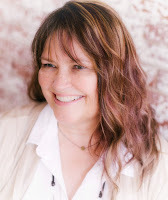 Edie Melson is a woman of faith with ink-stained fingers observing life through the lens of her camera. No matter whether she’s talking to writers, entrepreneurs, or readers, her first advice is always “Find your voice, live your story.” As an author, blogger, and speaker she’s encouraged and challenged audiences across the country and around the world. Her numerous books reflect her passion to help others develop the strength of their God-given gifts and apply them to their lives. Connect with her on her website, through Facebook, Twitter and on Instagram.
Edie Melson is a woman of faith with ink-stained fingers observing life through the lens of her camera. No matter whether she’s talking to writers, entrepreneurs, or readers, her first advice is always “Find your voice, live your story.” As an author, blogger, and speaker she’s encouraged and challenged audiences across the country and around the world. Her numerous books reflect her passion to help others develop the strength of their God-given gifts and apply them to their lives. Connect with her on her website, through Facebook, Twitter and on Instagram.
Published on November 27, 2021 22:00
November 26, 2021
A Writer's Self Worth - How Writers Can Overcome Performance Based Value

by Zena Dell Lowe @ZenaDellLowe
One of the things I’ve noticed about artists is that most of us experience intermittent bouts of “Existential Funk.” Call them crises if you like, but the gist of it is that we regularly enter into times of intense emotional turmoil where we basically question everything about our lives.
For example, I recently learned that my 24-year-old niece had landed her dream job at a dream company in the dream city of San Diego, where her base salary doubles what I made at her age, plus she gets benefits and commission. I was happy for her. (Really, I was!). But there was also this small part of me that looked at myself and thought, “Why couldn't I have done that? Why was I such a failure? What’s wrong with me?” It took me years to earn a regular income in my desired field using my talents, skills, and expertise, so in that moment, I admit I felt defeated.
Most of us, as artists, struggle with the existential funk of performance-based value at least a few times over the course of our lives.
Some of us have crises on a regular basis, doubting our talents, the quality of our art, whether God really called us, and our level of success. Even produced and published writers aren't exempt from this cycle. I’m not sure about you, but no matter what I accomplish, I find myself returning to this struggle over and over again, wrestling with my so-called worth and value as a result of my achievements, anguishing over my lack of performance, my lack of success, or my lack of financial gain.
The pervasiveness of this sort of perpetual dissatisfaction over our achievements (or lack thereof) may lead us to believe that these types of experiences just go hand in hand with being an artist. Perhaps they do. On the other hand, perhaps they stem from the reality that we have been programmed to base our value primarily on performance. Part of the reason for this is because we’re constantly looking at our accomplishments through the eyes of other people. We know we shouldn't compare ourselves to others or let the haters dictate our worth. However, there's a real thing here, too. There's something legitimate in our struggle.
Try as we may, we simply cannot help but to look at the work of our hands as an evaluative tool for determining how well we are doing.
After all, there’s this thing called stewardship, and so we deem ourselves as either failing or succeeding depending on how well we’ve done as stewards. This feels spiritual, even, because it means we’re not judging ourselves based on the financial rewards of the work, but rather, upon the completion of the work that we feel we’ve been called to do. And this is valid because we are called to be good stewards. We’re also called to work.
From the very beginning, we were meant to subdue the earth. Obviously, we’re not all gardeners these days, but part of what it looks like for artists to subdue the earth is to calm the chaos of our own lives and create an environment that nurtures our imaginations, to weed out the distractions that would choke out productivity and rob us of our creative potential. The truth is, we need evaluative criteria that we can apply to ourselves in order to make appropriate adjustments or corrections in terms of the art we create. There’s a purpose for the internal emotional torment we feel while trapped in an existential funk. Angst signals the soul in the same way as physical pain signals the body. It’s basically a warning indicator that says, “Something is wrong. Fix it.” The anguish we suffer can often be God’s way of nudging us in the right direction, telling us which way to go.
So, it would be short sighted of us to assume that all performance-based evaluations are bad. Yes, yes, we all know that God loves us because of who we are, not because of what we do, but we also know, on some level, that we are here TO do. Because one of the main things that God gives us to enjoy in life is the work of our hands. It may be hard for some people to believe, but in point of fact, work is a gift. It's something we're meant to enjoy. And one of the ways we encounter that enjoyment is when we experience the fruits of our labors—just like God did when He finished His work and declared, “It is good.”
God created us to work; to do things. So, there's something healthy—necessary even—about evaluating our “success” in terms of how faithful we’ve been to create stuff using the gifts we’ve been given. Have we utilized them well? What have we done with them? What “fruits” have been born as a result of our labors? But do you see the problem this creates? It puts us right back where we started since this whole argument focuses yet again on performance as the evaluative criteria of our worth. Which begs the question: How on earth are we supposed to get beyond the existential funk of performance-based value?
To make matters even more complicated, reason dictates that we should be successful with our God-given talents.
For example, isn't it reasonable to expect that since God gave us certain gifts, then we should be able to make a living using them? This sure seems like rational and realistic reasoning. And when we don't see ourselves as being able to do that, we take a big hit on our self-esteem because we assume we’re to blame for the failure. The logical argument goes something like this: If God gave us the talent, and if it’s reasonable to assume that we should be able to put that talent to good use (i.e., to earn an income using said talents), then any failure on our part to do so means, I am a failure.
In other words, we internalize the struggle. We see ourselves as the problem.
It’s more than just accepting blame or believing we’re doing something wrong. We develop new core beliefs about ourselves because we should be succeeding but we’re not. Therefore, WE are wrong. WE are the problem. There’s something fundamentally wrong with US. And that’s when the shame and self-recrimination slip in. We hear our inner critic telling us how bad we are, useless, unworthy, that we're incapable of living up to our full potential, or we're shoddy, horrible stewards. Often, we're aware that the self-contempt isn’t of God, so we try to adjust our faulty thinking by couching our performance in humble terms, such as, " I just need to look at whether or not I've been of service to others." But see, this is still a performance-based evaluation; it's just a particular type of performance that's being used to determine whether or not you're doing okay. And that's a problem because what happens if you get to an age where you can't be of service anymore? Does that mean that you have no value? Of course not. Your value, therefore, must not be connected to or based on your ability to be of service, any more than it is based on your ability to perform.
This truth is especially important for people (like me) who have experienced trauma or feel honestly that they have not yet reached their full potential or achieved what they were called to achieve because of the poor life choices they’ve made. In full transparency, I have made so many different mistakes in my life that Jerry Springer would have difficulty placing me on just one show. Suffice it to say, I got off the trajectory of the path that I believe I was meant to be on. I’ve experienced a lot of harm, caused a lot of harm, and generally made a mess of things. This is the narrative and recurring criticism that my inner critic whispers to me: that it’s too late. I’ve already ruined my life. I might as well give up.
Maybe you hear this same message, or maybe you hear a different one. But you’d be hard pressed to convince me that you can’t relate to this experience on some level. Hopefully, you know it’s a lie, but even so, how do you combat it? What do you do with the shame? The self-loathing? The fears that keep you up at night. How do we fight against the existential funk of performance-based value?
Assuming it is NOT God's will for us to continually go through these bouts of crippling self-doubt, then we need to find a way to deal with this cycle more effectively.
We need to reorient our understanding so that we have a healthier, dare I say, godlier perspective of what success actually means. We have to reframe our perception of where value and worth really come from. So, what would that look like? What criteria ought we to use as artists to evaluate our successes and failures; to determine how well we’re actually doing as artists?
Join me next month for part two of this post, where I’ll share the top three assessment tools that I use in my own life to deal with this phenomenon. In the meantime, may you take solace in knowing that you’re not alone in experiencing the existential funk of performance-based value. The struggle is real. The cycle is genuine. The angst is honest and valid. So, you’re in good company, my friend. Welcome to life as an artist!
TWEETABLEA Writer's Self Worth - How Writers Can Overcome Performance Based Value - insight and wisdom from @ZenaDellLowe on @EdieMelson (Click to Tweet)
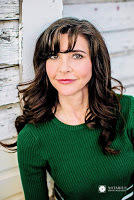 Zena has worked professionally in the entertainment industry for over 20 years as a writer, producer, director, actress, and story consultant. Zena also teaches advanced classes on writing all over the country. As a writer, Zena has won numerous awards for her work. She also has several feature film projects in development through her independent production company, Mission Ranch Films. In addition to her work as a filmmaker, Zena launched The Storyteller’s Mission with Zena Dell Lowe, a podcast designed to serve the whole artist, not just focus on craft. In 2021, Zena launched The Storyteller’s Mission Online Platform, where she offers advanced classes and other key services to writers. Zena loves story and loves to support storytellers. Her passion is to equip artists of all levels to achieve excellence at their craft, so that they will truly have everything they need to change the world for the better through story.
Zena has worked professionally in the entertainment industry for over 20 years as a writer, producer, director, actress, and story consultant. Zena also teaches advanced classes on writing all over the country. As a writer, Zena has won numerous awards for her work. She also has several feature film projects in development through her independent production company, Mission Ranch Films. In addition to her work as a filmmaker, Zena launched The Storyteller’s Mission with Zena Dell Lowe, a podcast designed to serve the whole artist, not just focus on craft. In 2021, Zena launched The Storyteller’s Mission Online Platform, where she offers advanced classes and other key services to writers. Zena loves story and loves to support storytellers. Her passion is to equip artists of all levels to achieve excellence at their craft, so that they will truly have everything they need to change the world for the better through story.To find out more about Zena or her current courses and projects, check out her websites at WWW.MISSIONRANCHFILMS.COM and WWW.THESTORYTELLERSMISSION.COM
Published on November 26, 2021 22:00
November 25, 2021
Five Reasons to Be Thankful for a Writing Critique

by Lori Hatcher @LoriHatcher2
I’ve been a Word Weavers International member for almost seven years, but I still hold my breath when my turn comes around to be critiqued. Will they like it or hate it? Have I made a grave theological error that could cause someone to be spiritually confused or did I explain the Bible clearly? Will they get my humor, or will it fall flat?
Because I want to produce writing that engages the heart, mind, and spirit, I continue to subject myself to the exquisite torture of critique.
If this is your goal, let’s consider five reasons to be thankful for critique
1. Critique gives us outside-our-head perspective. My critique group contains a delightful assortment of ages, genders, professions, and spiritual backgrounds. When they read my piece, they filter it through their unique perspective and offer insight. They help me see how my writing might be received by readers who are different from me. I’m forever grateful for my unmarried friends who remind me, “Don’t forget the singles.” They help me broaden scope and application of my articles and devotions beyond my married woman-with-children perspective.
2. Critique helps us benefit from someone else’s knowledge.Members of my critique group have taught me when to place a period in a list and how to use dialogue to move the action along. I’ve learned how to use batching (look it up), the Pomodoro technique, and an online rhyming dictionary. I’ve also learned cool facts about horses, German Christmas traditions, and third person POV. I come away from every meeting with at least one new fact or hack to enhance my writing.
3. Critique helps us grow professionally and personally.When a critique group or partner shares ideas on how to make our work better, we have two choices. We can feel hurt and offended that they’d dare suggest our writing isn’t perfect, or we can welcome their insight and consider their thoughts. Sometimes their ideas are off base, but often they’re spot on. If we allow insecurity to prevent us from considering their perspective, we hinder our personal and professional growth. The ability to give and receive negative critique is a major steppingstone to becoming a writer.
4. Critique can teach us humility.1 Peter 5:5 reminds us, “God resists the proud, but gives grace to the humble.” When we pridefully reject honest and well-meaning critique, we leave God no choice but to resist us. Oh my. Isn’t this a terrifying thought? When we accept and respect others’ opinions, whether we agree with them or not, we position ourselves to receive God’s grace. Who couldn’t use a little more of God’s grace?
5. Critique spurs us on.I don’t know how often I’ve come to a meeting discouraged and doubtful. Is my writing helpful or am I just wasting my time? Am I writing better or making the same mistakes over and over again? Thankfully, my critique partners have a much better perspective on my writing than I do. They notice that I’ve learned to apply fiction techniques to my prose, eliminate unnecessary adverbs, and write tight(er). And when they laugh in all the right places? It’s like saying, “Sick ‘em” to a dog. I can write for months inspired by a genuine, well-phrased compliment.
If you’re unsure about the value of a critique partner or group, I hope I’ve convinced you. Do you have a critique group or partner? Be thankful. If you don’t, visit Word Weavers International and take the first step toward critique.
Happy Thanksgiving!~Lori
TWEETABLEFive Reasons to Be Thankful for a Writing Critique, from @LoriHatcher2 on @EdieMelson (Click to Tweet)
 Lori Hatcher loves God even more than she loves chocolate—and that’s a lot. Since He saved her at age 18, she’s been on a quest to know and love Him more. Her deepest desire is for others to join her on the journey. As an author, blogger, writing instructor, women’s ministry speaker, and career dental hygienist, she writes for Our Daily Bread, Guideposts, Revive Our Hearts, and Crosswalk.com. She’s written three devotional books, including Refresh Your Faith, Uncommon Devotions from Every Book of the Bible, and Hungry for God…Starving for Time, Five-Minute Devotions for Busy Women. Her latest book, Refresh Your Prayers, Uncommon Devotions to Restore Power and Praise releases March 1, 2022. Connect with her at www.LoriHatcher.com or on Facebook, Twitter (@lorihatcher2) or Pinterest (Hungry for God).
Lori Hatcher loves God even more than she loves chocolate—and that’s a lot. Since He saved her at age 18, she’s been on a quest to know and love Him more. Her deepest desire is for others to join her on the journey. As an author, blogger, writing instructor, women’s ministry speaker, and career dental hygienist, she writes for Our Daily Bread, Guideposts, Revive Our Hearts, and Crosswalk.com. She’s written three devotional books, including Refresh Your Faith, Uncommon Devotions from Every Book of the Bible, and Hungry for God…Starving for Time, Five-Minute Devotions for Busy Women. Her latest book, Refresh Your Prayers, Uncommon Devotions to Restore Power and Praise releases March 1, 2022. Connect with her at www.LoriHatcher.com or on Facebook, Twitter (@lorihatcher2) or Pinterest (Hungry for God).
Published on November 25, 2021 22:00
November 24, 2021
How One Author Creates Through the Birth of a Character - Part 1

by Henry McLaughlin @RiverBendSagas
People have asked where my characters come from. My response frequently is, “I don’t know. He just showed up one day and said he had a story to tell.”
That’s how Michael Archer, the protagonist of my Riverbend series, came to be.
The first glimmer of book one, Journey to Riverbend, came, like most of my story ideas, from an image. There was a guy standing on a ridge looking into a valley. The sun was setting. He wore a cowboy hat and held the reins to a horse. OK, I thought, it’s a western. I like westerns. Other than that, he was a dark silhouette, a mysterious shadow.
I said to myself, “Who is he and why is he standing there?” At that moment, I took my first step as writer. I met my first character.
I didn’t know much about the craft, especially about creating characters. I just knew I had to write. So, I jumped in with both feet. Of course, the water was over my head.
But I had enough sense to get to know Michael and what his story was.
He was in his late twenties and had lived a prodigal life before coming to know Jesus. In an almost Inigo Montoya voice, his told, “My name is Michael Archer and I believed I killed my father.”
He told about his early childhood on a farm in Southern New England. Not a prosperous farm because his father was a drunk and abusive to Michael, his sister Ellie, and their mother. One day, at age 13, Michael caught his father molesting Ellie. He defended his sister with a pitchfork and stabbed his father. He ran away leaving his father gushing blood. His sister ran to a neighboring farm. His mother was dead on the kitchen floor after another beating from her husband.
Michael drifted into a life of alcohol, gambling, and violence. He was becoming just like his father. Except he hated farming. Until…he was sitting in a jail cell in a small town in Missouri after another night of drinking and fighting. The town minister visited him and led him to Jesus. This is much condensed version of Michael’s conversion experience which took several visits from the preacher often with the risk of a punch in the nose, or worse.
In learning the craft, I’ve come across and tried to use various tools to build characters.
I’ve used Meyer-Briggs and other personality trait systems. I’ve completed detailed questionnaires. These I found to be frustrating because they took a lot of time to fill out and yielded a lot of information I never used.
The system that works best for me is what I used with Michael. I let him tell me his story.
I’ve added some questions to get deeper into his motivations. Questions like:What is the character’s primary story goal?Why?What will the character do if he or she doesn’t achieve this goal?What are the character’s core values?As I write the story, I look for ways to bring these values into conflict, so the character must make a choice between two good values at the climax.
Another key component for me to bring a character to life is to expect surprises from the character as the story moves along.
When I let the character tell the story, he reveals more about himself. Stuff not shown earlier or in the preparation of the story material. For me, this makes the character alive, not bland information on a sheet of paper or in a form or chart. The character is more human because he or she has the opportunity to do something unexpected. If it surprises me, it will surprise the reader and make the story more dynamic.
What are some things you’ve found useful in bringing your characters to life?
TWEETABLEHow One Author Creates Through the Birth of a Character - Part 1 with Henry McLaughlin, @RiverBendSagas on @EdieMelson (Click to Tweet) Henry’s debut novel, Journey to Riverbend, won the 2009 Operation First Novel contest.
Henry’s debut novel, Journey to Riverbend, won the 2009 Operation First Novel contest.Henry edits novels, leads critique groups, and teaches at conferences and workshops. He enjoys mentoring and coaching individual writers.
Connect with Henry on his BLOG, TWITTER and FACEBOOK.
Featured Photo by Christina @ wocintechchat.com on Unsplash
Published on November 24, 2021 22:00
November 23, 2021
Are You at a Writing Crossroads?
Edie here. Today I'm super excited to share a guest post from an author I've admired for many years - Dr. MaryAnn Diorio! Be sure to check out her latest books and give her a warm TWC Welcome!

Are You at a Writing Crossroads?by MaryAnn Diorio @DrMaryAnnDiorio
One of my favorite poems is Robert Frost’s The Road Not Taken. You may remember its closing lines:
Two roads diverged in a wood, and I,I took the one less traveled by,And that has made all the difference.
Often in our writing career, we come to a fork in the road, as described by Frost in his magnificent poem. One fork I call the High Road and the other fork I call the Low Road. The High Road is the road of integrity and virtue, the road marked by obedience to God’s way of conducting our writing career. The Low Road is the road of compromise and rebellion, the road marked by disobedience to God’s way of conducting our writing career.
For example, there are times in our writing career where we may be tempted to water down the Gospel for the purpose of landing a contract. Or we may be tempted to stretch the limits of decency in the language or content of the fiction we write. Whatever the temptation, we have a choice to take the High Road or the Low Road.
Are you at a writing crossroads in your career now? Are you trying to decide which road to take as you move forward in your journey? Are you being tempted to compromise God’s Word for the sake of a sale? If so, I urge you to take the High Road, the road marked by integrity and virtue. The road that will not allow compromise for the purpose of success.
The road that glorifies God.
And that makes all the difference.
TWEETABLEAre You at a #Writing Crossroads? Encouragement & wisdom from @DrMaryAnnDiorio on @EdieMelson (Click to Tweet)
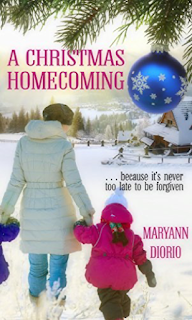 A Christmas Homecoming
by MaryAnn Diorio
A Christmas Homecoming
by MaryAnn Diorio
Seven Christmases have passed since Sonia Pettit last heard from her daughter Jody. Since Jody's departure, Sonia's world has been turned upside down. Her husband has died of a broken heart, and her son, bitter over his sister's destructive actions, has become rebellious. Her greatest desire is to have her family together at Christmas, but after what Jody has put them all through, can Sonia truly forgive her daughter?
Jody Pettit O'Dair ran away to experience a life of adventure and excitement, but since her departure, her world has been turned upside down. She's been abandoned by the man she met and married, lost her job, and is unable to care for her two children. With nowhere else to turn, this prodigal daughter begins the long journey home and prays she will be welcomed after walking away so long ago. Will Jody find forgiveness in the arms of her family as easily as she received it from God?
Purchase Link for A Christmas Homecoming
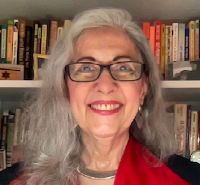 Dr. MaryAnn Diorio is a widely published, award-winning author of compelling fiction that deals with the deepest issues of human life. Her fiction has won several awards, including the 2020 Christian Indie Book Award for Historical Fiction, the Silver Medal for E-Book Fiction in the 2015 Illumination Book Awards Contest, and First Place for Inspirational Fiction in the 2011 Colorado RWA Launching a Star Contest.
Dr. MaryAnn Diorio is a widely published, award-winning author of compelling fiction that deals with the deepest issues of human life. Her fiction has won several awards, including the 2020 Christian Indie Book Award for Historical Fiction, the Silver Medal for E-Book Fiction in the 2015 Illumination Book Awards Contest, and First Place for Inspirational Fiction in the 2011 Colorado RWA Launching a Star Contest.
MaryAnn holds the PhD in French with a concentration in Comparative Literature from the University of Kansas. She also holds the MFA in Writing Popular Fiction from Seton Hill University. A former university Professor of Romance Languages and Fiction-Writing, MaryAnn is the founder and director of The MaryAnn Diorio School of Writing. She resides with her husband in New Jersey. They are the blessed parents of two amazing daughters, a very smart son-in-law, and six rambunctious grandchildren. In her spare time, MaryAnn loves to paint in oils and acrylics, play the piano and mandolin, and make up silly songs with her grandchildren. You can reach MaryAnn at maryanndiorio.com.

Are You at a Writing Crossroads?by MaryAnn Diorio @DrMaryAnnDiorio
One of my favorite poems is Robert Frost’s The Road Not Taken. You may remember its closing lines:
Two roads diverged in a wood, and I,I took the one less traveled by,And that has made all the difference.
Often in our writing career, we come to a fork in the road, as described by Frost in his magnificent poem. One fork I call the High Road and the other fork I call the Low Road. The High Road is the road of integrity and virtue, the road marked by obedience to God’s way of conducting our writing career. The Low Road is the road of compromise and rebellion, the road marked by disobedience to God’s way of conducting our writing career.
For example, there are times in our writing career where we may be tempted to water down the Gospel for the purpose of landing a contract. Or we may be tempted to stretch the limits of decency in the language or content of the fiction we write. Whatever the temptation, we have a choice to take the High Road or the Low Road.
Are you at a writing crossroads in your career now? Are you trying to decide which road to take as you move forward in your journey? Are you being tempted to compromise God’s Word for the sake of a sale? If so, I urge you to take the High Road, the road marked by integrity and virtue. The road that will not allow compromise for the purpose of success.
The road that glorifies God.
And that makes all the difference.
TWEETABLEAre You at a #Writing Crossroads? Encouragement & wisdom from @DrMaryAnnDiorio on @EdieMelson (Click to Tweet)
 A Christmas Homecoming
by MaryAnn Diorio
A Christmas Homecoming
by MaryAnn DiorioSeven Christmases have passed since Sonia Pettit last heard from her daughter Jody. Since Jody's departure, Sonia's world has been turned upside down. Her husband has died of a broken heart, and her son, bitter over his sister's destructive actions, has become rebellious. Her greatest desire is to have her family together at Christmas, but after what Jody has put them all through, can Sonia truly forgive her daughter?
Jody Pettit O'Dair ran away to experience a life of adventure and excitement, but since her departure, her world has been turned upside down. She's been abandoned by the man she met and married, lost her job, and is unable to care for her two children. With nowhere else to turn, this prodigal daughter begins the long journey home and prays she will be welcomed after walking away so long ago. Will Jody find forgiveness in the arms of her family as easily as she received it from God?
Purchase Link for A Christmas Homecoming
 Dr. MaryAnn Diorio is a widely published, award-winning author of compelling fiction that deals with the deepest issues of human life. Her fiction has won several awards, including the 2020 Christian Indie Book Award for Historical Fiction, the Silver Medal for E-Book Fiction in the 2015 Illumination Book Awards Contest, and First Place for Inspirational Fiction in the 2011 Colorado RWA Launching a Star Contest.
Dr. MaryAnn Diorio is a widely published, award-winning author of compelling fiction that deals with the deepest issues of human life. Her fiction has won several awards, including the 2020 Christian Indie Book Award for Historical Fiction, the Silver Medal for E-Book Fiction in the 2015 Illumination Book Awards Contest, and First Place for Inspirational Fiction in the 2011 Colorado RWA Launching a Star Contest.MaryAnn holds the PhD in French with a concentration in Comparative Literature from the University of Kansas. She also holds the MFA in Writing Popular Fiction from Seton Hill University. A former university Professor of Romance Languages and Fiction-Writing, MaryAnn is the founder and director of The MaryAnn Diorio School of Writing. She resides with her husband in New Jersey. They are the blessed parents of two amazing daughters, a very smart son-in-law, and six rambunctious grandchildren. In her spare time, MaryAnn loves to paint in oils and acrylics, play the piano and mandolin, and make up silly songs with her grandchildren. You can reach MaryAnn at maryanndiorio.com.
Published on November 23, 2021 22:00
November 22, 2021
Dipping the Quill Deeper: Light (and Victory) in the Darkness
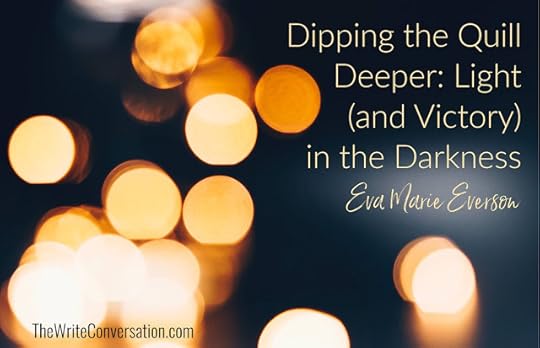
by Eva Marie Everson
When I was a child, I had an acute fear of the dark. So did my brother, younger by three years. When we were about seven and ten, we wrote a contract together that stated if one of us ever woke in the middle of the night afraid, we had the right to get into bed with the other, no questions asked.
We both slept with our closet lights on, the door ajar.
Into adulthood, neither of us liked being in the dark and, in fact, as my brother’s days on earth neared an end, he asked me not to turn out all the lights in his hospital room . . . to keep a light burning somewhere. I told him that I would not only leave a light on for him, I also wouldn’t leave him, period. We kept our contractual agreement until the day he died, when he went off to be with the Light of the World.
Dark has always been associated with evil. With fear. With the unknown. That’s why, by and large, we don’t like it.
I have a clear memory of sleeping over at my friend Tina’s house when we were children. Tina lived “out in the country,” where there were no streetlights. On moonless, starless nights, the world turned to pitch as soon as her overhead bedroom light was shut off. I remember lying in the bed next to Tina on one such night, holding my hand directly in front of my face, seeing nothing. I only knew my hand was there because it was my hand. Had Tina placed her hand in front of my face, I wouldn’t have known. And I didn’t like that one bit.
I also recall the night I drove down a Georgia-red-clay road on the eve of my 18th birthday. The skies had let out a deluge for the past hour or so, which meant the road was a slippery mess. It was also deeply rutted. So, what I found myself driving down that moonless night was a deeply rutted slippery mess. Even though I drove at a snail’s pace, I hit one of the ruts wrong and lost control of the car. After fishtailing for a few terrifying moments, the car slid into a ditch and tipped onto its side.
A friend lived down the road (I had just dropped her off) and the hour was nearing midnight. Earlier in the evening, my friend had told me about two “killer dogs” who lived on the road. “I wouldn’t want to be out if they got loose,” she said. As I managed to get myself out of the car (I had tried for several minutes to get the car out of the ditch, but to no avail), I wondered if I had already passed the “killer-dog” house or if it was on up the road toward the highway. My only choice was to start walking back to Donna’s and to stay dead center in the road. There were also two other issues. One, like Tina, Donna lived in the middle of nowhere with no streetlights, and two, the rain continued to pelt both me and the ground around me, which made walking difficult.
I began to pray. Silently, of course, in case the killer dogs overheard me. As long as Jesus could hear the cries of my heart, I figured I would be okay. Suddenly, lightning began to illuminate the sky. Streaks of it. Bold visions of it. The light was constant and made a way for me, keeping me in the center of the road and directing me to Donna’s currently unlit home.
I recently read the latest novel by Bill Myers, Rendezvous with God, an insightful retelling of the Gospel with a modern twist. I don’t typically underline words and phrases and sentences in novels, but one in particular within this work caught my attention. I reached for my pencil.
“But you’ve got to remember, Will, the brightest victories hide in the darkest places.”
The day my brother died was one of the darkest—if not the darkest—of my life . . . and yet, for him, it proved to be the most victorious. The brightest. About a half hour after his death, I reached for my phone to notify our family—cousins, aunts, uncles—and friends. I texted simply: Van is with Jesus. He has won the race. He is the victor. Some people would say that he fought a battle with cancer and lost. I say he fought a battle with cancer and won.
That night with Tina, even though there was no light in the room (and I do mean, no light), my friend was beside me. This meant the darkness wasn’t so hard to take. It didn’t hold the same threat. The same fear. In the morning, when we woke to the bright summer sunshine streaming in through the window, I felt as though I had accomplished something. I had slept in the dark without a light, but with a friend.
And on the eve of my eighteenth birthday, when the clock struck midnight and I walked down that dark muddy road, I wasn’t alone at all. Jesus had sent a great light to guide me to where I could safely call my father . . . and a tow truck.
Without the dark, none of those stories would hold any impact, really, because the light—and the Light—shines brightest when everything has gone to pitch. Much as Mr. Myers so eloquently phrased it.
Our lives get like that sometimes—they turn dark and ugly, lonely and frightening. But the Light has come and when we call upon Him, our greatest Friend, He will show off in ways we can hardly begin to expect. When we writers write—no matter what genre we have chosen—we must keep that in mind. To show off the Light, we explain the darkness it shines into. Sometimes that is death, sometimes fear, sometimes the unknown.
But always, always, the Light.
The people walking in darkness have seen a great light; on those living in the land of deep darkness a light has dawned (Isaiah 9:2).
TWEETABLEDipping the Quill Deeper: Light (and Victory) in the Darkness, wisdom and encouragement from Eva Marie Everson on @EdieMelson (Click to Tweet)
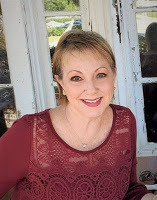 Eva Marie Everson is the president of Word Weavers International and the director of its two conferences. She is the multiple award-winning author of nearly 40 works and has received awards as a speaker and Bible teacher. Eva Marie is often seen at writers conferences across the States. She served as a mentor for Jerry B. Jenkins’ Christian Writers Guild for several years, and taught as a guest professor at Taylor University in 2011. She and her husband make their home in Central Florida where they enjoy their grandchildren. They are owned by one small dog and a princess cat.
Eva Marie Everson is the president of Word Weavers International and the director of its two conferences. She is the multiple award-winning author of nearly 40 works and has received awards as a speaker and Bible teacher. Eva Marie is often seen at writers conferences across the States. She served as a mentor for Jerry B. Jenkins’ Christian Writers Guild for several years, and taught as a guest professor at Taylor University in 2011. She and her husband make their home in Central Florida where they enjoy their grandchildren. They are owned by one small dog and a princess cat.
Published on November 22, 2021 22:00



